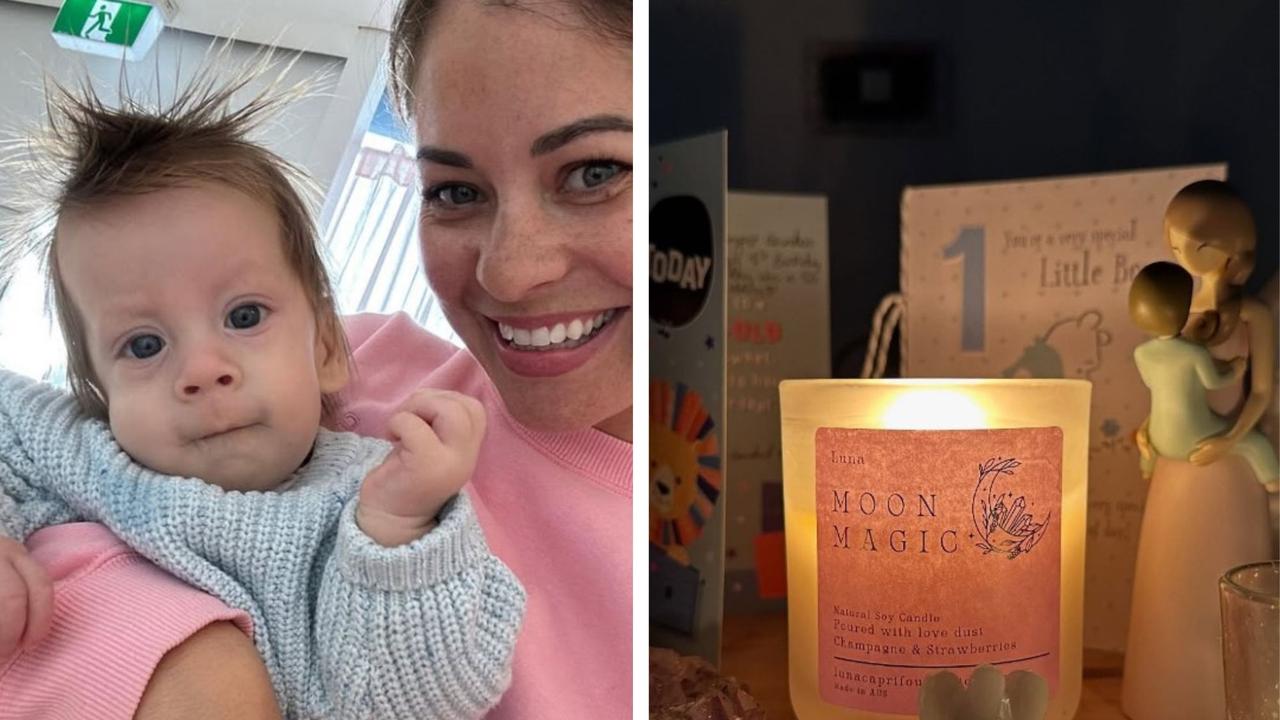Top athletes Cate Campbell and Rheed McCracken give warning over tech
Two of Australia’s top athletes have warned of the damage of “digital devices” pulling kids away from the glories of sport to the closed world of smartphones.

Two of Australia’s top athletes have delivered a stern warning to parents about the dangers of smartphones and social media, saying digital distractions are pulling kids away from the glories of sport.
Speaking after a special meet-up with children at Allianz Stadium on Tuesday, retired Olympic swimmer Cate Campbell and Paralympic racer Rheed McCracken said competing with digital devices was “really difficult” and parents would need to actively invest in sports to keep their children healthy and safeguard their shot at experiencing the highs of sporting excellence.
“I am not judging a single parent who has sat their kid in front of an iPhone or a TV after a long day at work,” Campbell told NewsWire.
“But when I was a kid the highlight of the week was going to Friday nightclub night where we could get our red frogs and sausage and bread.
“So I think trying to encourage as many children but as many parents as possible to see it as a worthwhile investment is important.”
New research commissioned by Allianz shows about 30 per cent of children ask their parents to “drop out” of sport by the age of 15.
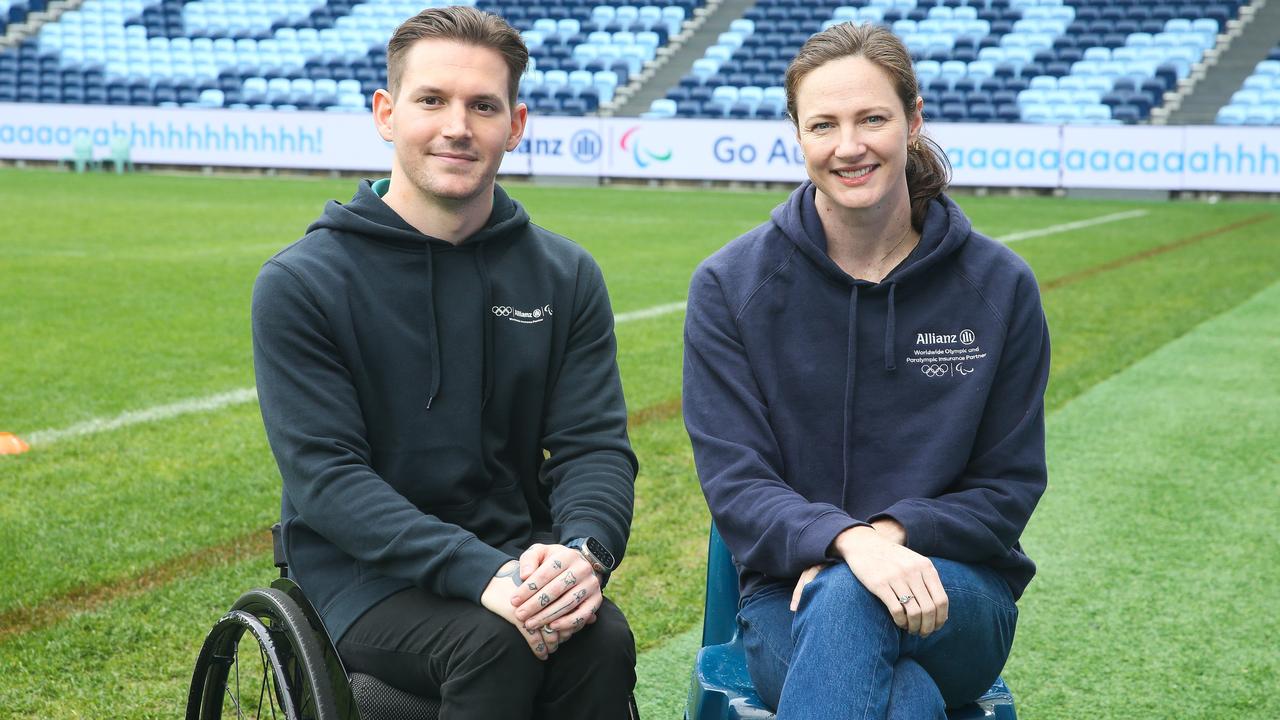
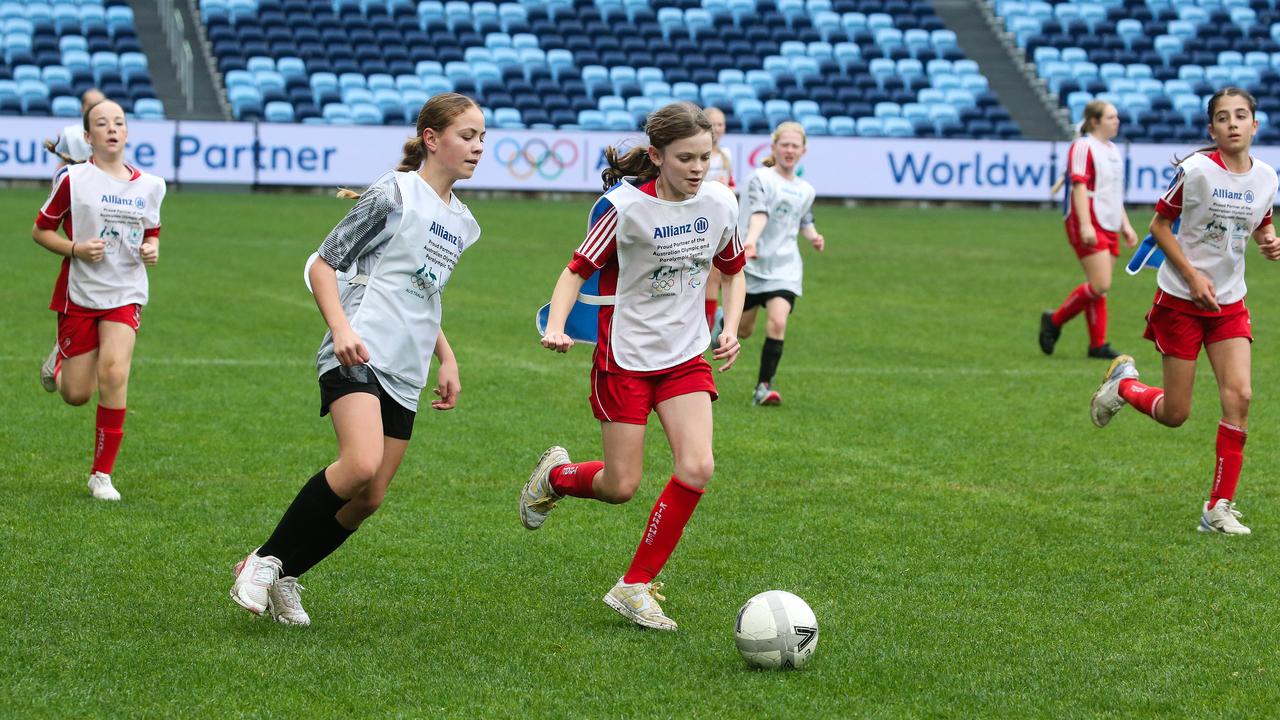
“It’s almost the same rate of kids who are dropping out of sport that are taking up things like gaming or indoor or more digital activities,” Campbell said.
“It is a real struggle to keep kids active and help promote that healthy lifestyle when it is so much easier to be indoors, be on a phone.
“But I would say I have never met someone who has regretted or resented their involvement in sport.”
The survey, which targeted 1007 parents of children aged between five and 15 years, also found time and finances were two key barriers to keeping children in sport.
Some 54 per cent of parents said time was the biggest barrier to participation and 46 per cent listed financial commitments.
McCracken said finances were often a particular challenge for kids with disabilities.
“For me personally, the alarming thing is kids with disabilities dropping out of sport at the age of 11, or asking to not play sport anymore,” he told NewsWire.
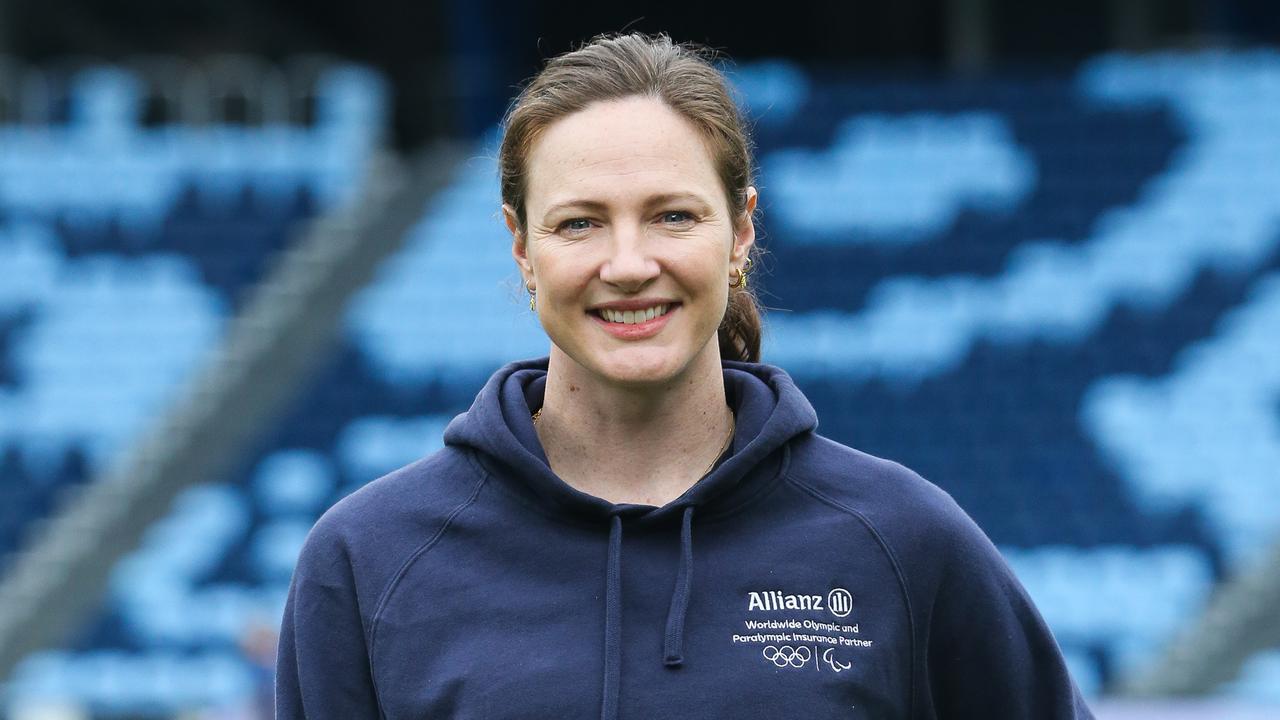
“When it comes to kids with disabilities, especially equipment and finances and access to equipment, my parents couldn’t afford a race chair for me to get involved.
“I borrowed my first racing wheelchair and then the Bundaberg community fundraised for me to get my own chair, which I then used for the Paralympics in London in 2012, and without that support I would have really struggled.”
The survey shows some 50 per cent of kids with disabilities decide to stop playing sports by the age of 11.
Girls are also more likely to drop out of sports than boys, the survey shows.
On Tuesday, Campbell and McCracken joined with a host of Olympians and Paralympians to give kids a glimmer of the thrills top-level sport can deliver, with dozens of children running out onto the massive stadium to feel what it is like to play and compete at the biggest of stages.
“It was really awesome to watch all the kids be so enthusiastic,” Campbell said.
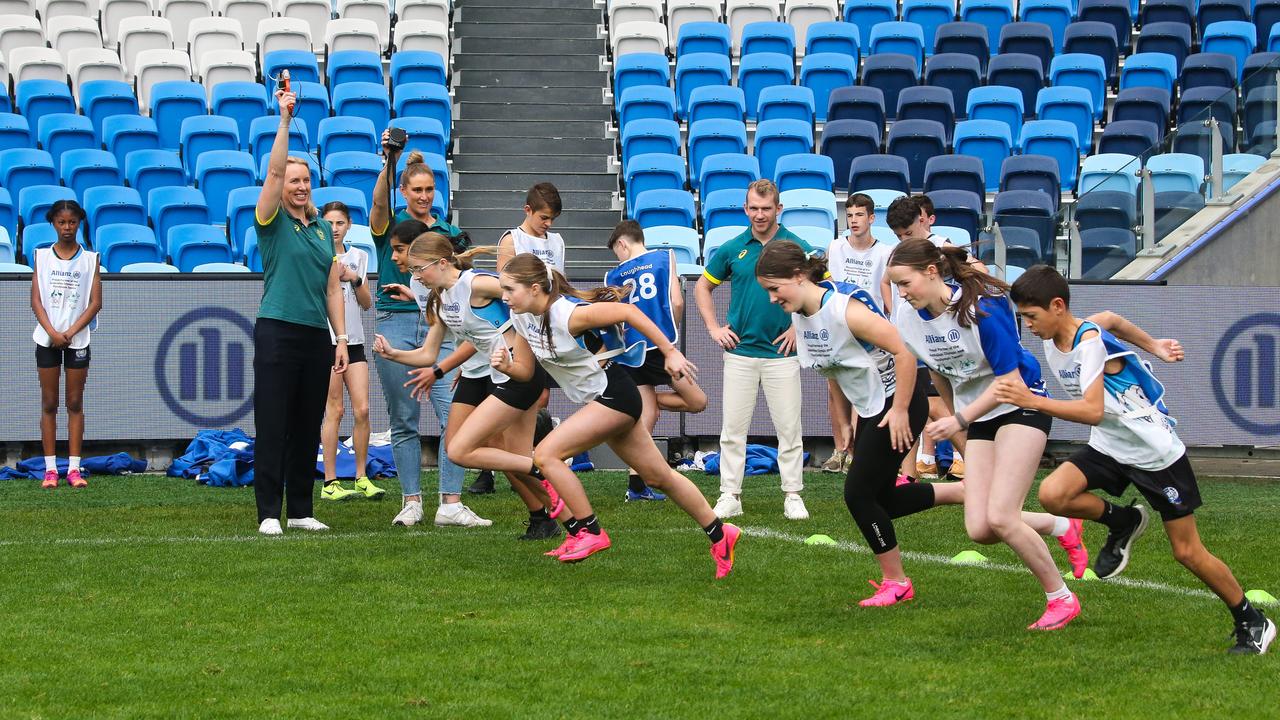
“Every time I come into contact with young kids, I’m reminded of how enthusiastic I was about sport when I was younger.
“It reignites that passion and imagination and fire for me.”
Campbell said she was “most alive” in the concentrated moments at the starting block before a big race.
“I always say that the most alive you will ever feel is, for me behind the starting blocks,” she said.
“There is nothing quite like it. You re nervous, you are excited. Hoping that everything goes according to plan.
“But also remembering that this moment you are stepping into is a dream you have had since you were a child.”



